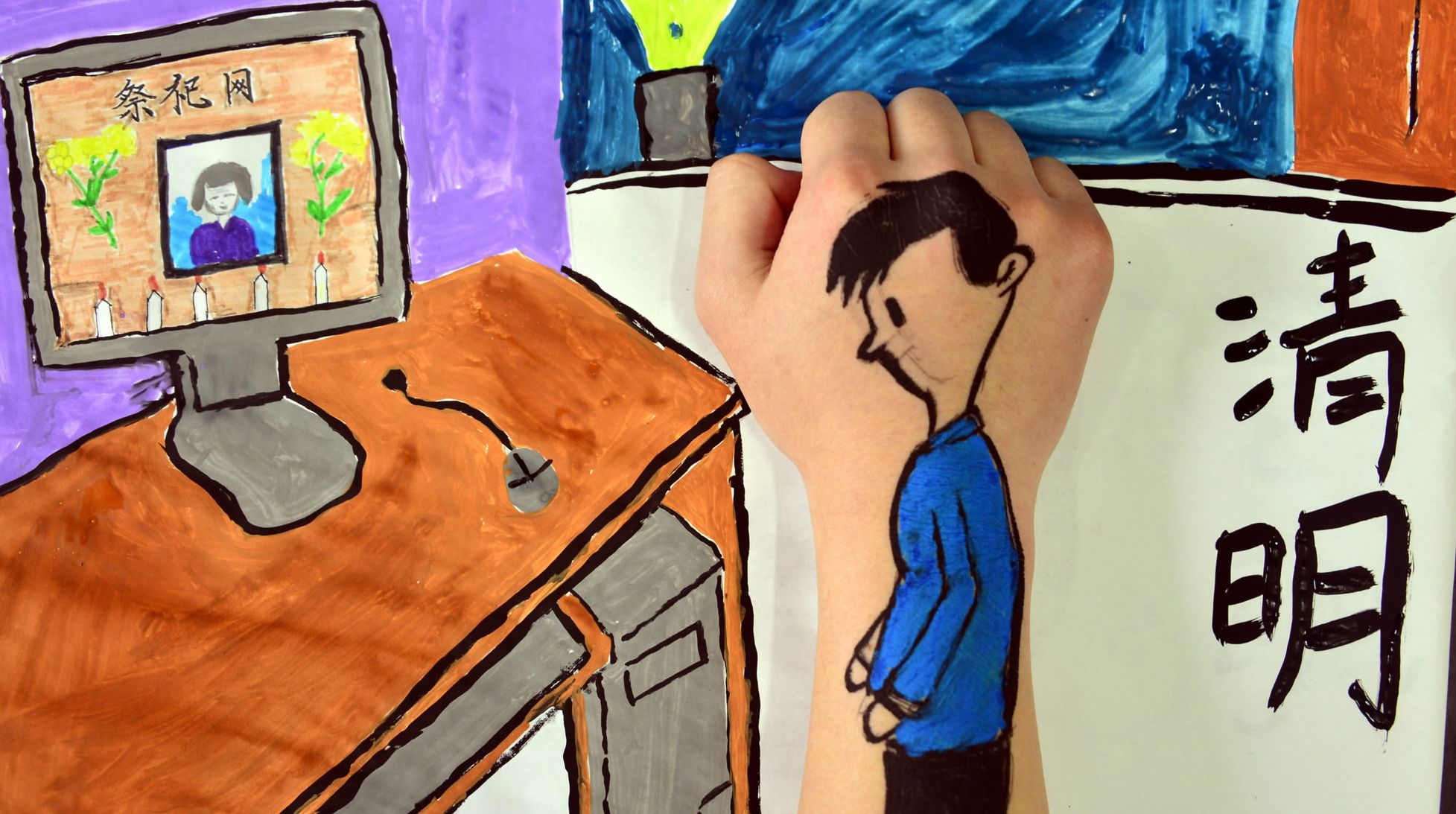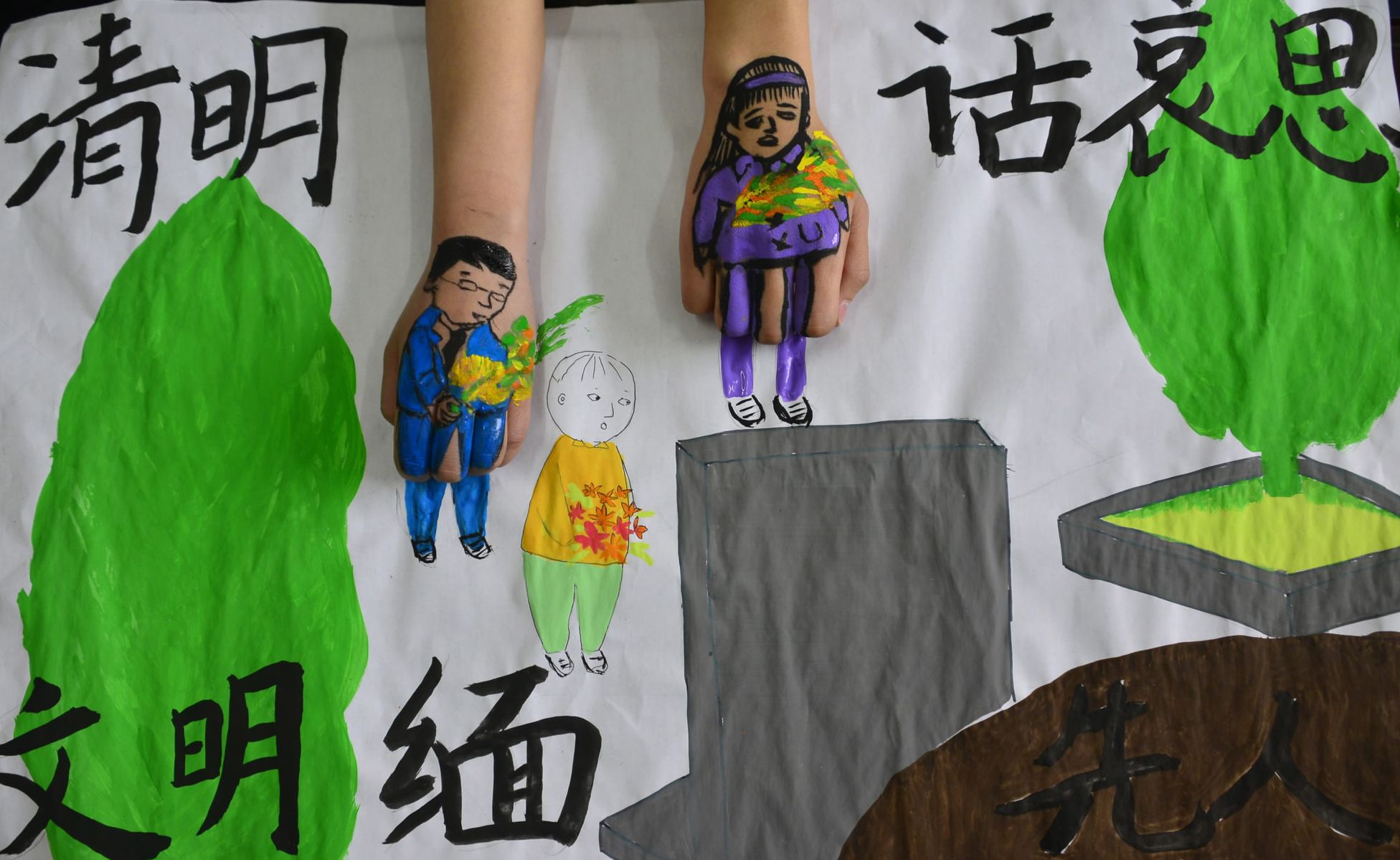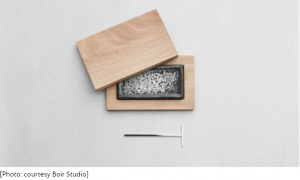导读:清明即将来临,依照中国祭祖习俗,往往要摆放瓜果饭食、烧些车马衣服来追念逝者,但浪费掉的粮食、焚烧纸物却给行进在环保路上的中国带来不利影响。建议返乡祭祖的人们,可以以鲜花这种环保形式缅怀逝者!

A group of university students are taking part in a special campaign aimed at encouraging people to celebrate next Tuesday’s Qingming Festival in a suitably environmentally-friendly manner.
下周二就将迎来中国传统节日清明节。为鼓励人们以环保、友好的方式祭祖,一群大学生发起了项特别活动。

Also known as Tomb-Sweeping Day, the Qingming Festival is usually observed on the first day of the fifth solar terms in the Chinese traditional calendar, and is a time for honoring deceased family relatives. Traditional celebrations include visiting the burial grounds, cleaning tombstones and leaving large bounties of food behind. Another notable custom has been that of burning symbolic money and replicas of material goods such as cars, in the hope that their ancestors will acquire said goods in the afterlife.
清明节,也即中国人熟知的扫墓节。通常是中国农历第五节气的第一天,人们常在这一天祭祀亡故的亲人。传统的祭祀活动包括拜访墓地、清理墓碑、呈供饭食祭品。还有一个著名的习俗就是:焚烧纸钱、汽车之类仿制品,希望逝者死后仍然可以享受。
However, with concerns that excessive burning may have a detrimental effect on China’s air quality, local governments have been eager to encourage more low-carbon alternative measures.
然而,考虑到过度焚烧或给中国空气质量带来不利影响,当地政府已经鼓励人们选择低碳方式祭祖。

With this mind, students from Liaocheng University in east China’s Shandong Province produced several paintings and pictures depicting people paying respects to their deceased family members in a greener way than usual, by leaving bunches of flowers instead of baskets of leftover food, and avoiding the burning of money and other sacrifices.
思及至此,来自山东省聊城大学的学生们创作了数幅画作,描绘了一幕幕更环保的祭祖画面。人们摒弃以往携篮饭菜、烧些纸钱祭品的方式,代之以捧花表达哀思。
Back in 2011, one cemetery in the southwestern Chinese city of Chongqing even provided thousands of bunches of free flowers to people who had promised not to use incense sticks or burn paper sacrifices during the Qingming celebrations.
忆及2011年,位于中国西南部重庆的一座公墓,甚至免费供应成千上万的花束给清明期间不点香、不烧纸钱祭品的扫墓人。







